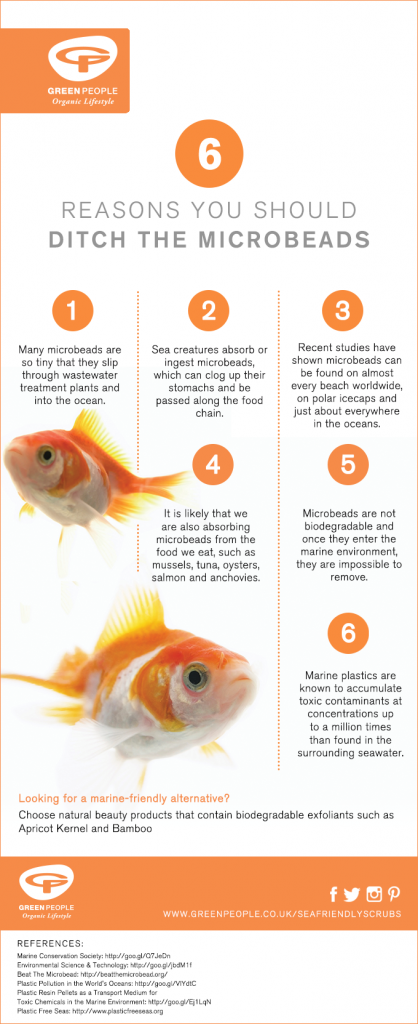Microbeads
| You may have seen and heard about a lot of damage being caused to marine life by plastics in the sea - and you may also have heard about microbeads lately. Microbreads are found in many mainstream face scrubs, shower gels and even toothpastes. Microbeads are added to give an exfoliating action. The problem is that as we rinse scrubs and peels off, the microbeads go down the drain. They are too small to be filtered out in sewage treatments so they end up in the sea. So potentially they could end up in the fish we eat and back in our bodies. They're bad news for the environment but the good news is that there are natural alternatives that can be used, such as bamboo and apricot kernel. Sussex based company Green People offers handmade health and beauty products that are 100% natural and certified organic. They are against the use of microbeads and have worked closely with the Marine Conservation Society to try and get the message out there about the harm they do to marine life. Their scrubs are microbead free and contain only natural exfoliants. They've asked us to pass on six reasons why you should ditch microbeads. |

| In the US, legislation passed by Congress means that no rinse-off cosmetic product containing microbeads will be made after 1 July 2017. Such products won't be sold through interstate commerce after 1 July 2018. The Swedish Chemicals Agency Kemi has proposed a similar ban on the use of plastic microbeads in rinse off cosmetics and proposed that this ban come into effect from 1/1/2018. It says an alternative to a Swedish ban would be to create EU legislation to ban microbeads. As part of its government-mandated report, Kemi also said that an alternative to a Swedish ban would be to create EU legislation to ban microbeads on a much wider scale, something that would be welcomed by campaigners. The Marine Conservation Society launched the ‘Beating the Bead!’ campaign in 2014 to raise awareness of the dangers of microbeads to marine ecosystems and to give us an easy way to choose products that don’t contain damaging plastics. |